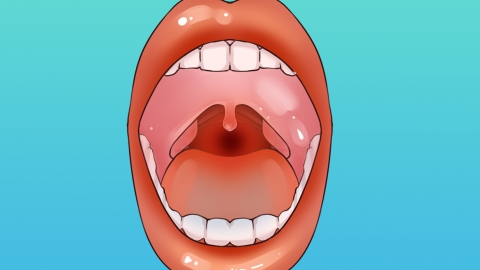What medicine should I take for a sore throat?
Generally speaking, the throat refers to the pharynx. Sore throat may be caused by factors such as dry environment, excessive voice use, acute pharyngitis, acute tonsillitis, or acute epiglottitis. It is recommended to seek timely medical advice and use medications such as Guilin Watermelon Frost tablets, Lanqin Oral Liquid, Amoxicillin Capsules, Penicillin V Potassium Tablets, and Ibuprofen Sustained-Release Capsules under the guidance of a physician. Detailed explanations are as follows:

1. Dry Environment
When the ambient humidity is low, the air continuously draws moisture from the pharyngeal mucosa, causing it to become dry and dehydrated, which leads to sore throat. Usually, no medication is required. It is recommended to use a humidifier to increase indoor humidity and wear a protective mask when going outdoors to reduce direct irritation of dry air on the throat.
2. Excessive Voice Use
Speaking loudly for extended periods, singing, or shouting can cause fatigue in the throat muscles and frequent vibration and friction of vocal cords, resulting in congestion and swelling of the pharyngeal mucosa and subsequent pain. Typically, no medication is required. It is advised to use your voice appropriately, avoid prolonged continuous vocalization, and drink water promptly when experiencing dryness in the throat.
3. Acute Pharyngitis
Acute pharyngitis is commonly caused by viral infections, such as rhinovirus and adenovirus, with bacterial infections (often streptococcus) being secondary causes. Viruses and bacteria attack the pharyngeal mucosa, triggering an inflammatory response that causes congestion, swelling, and pain in the throat. Symptoms may also include dryness and itching. Patients can use medications such as Guilin Watermelon Frost tablets, Lanqin Oral Liquid, and Amoxicillin Capsules under medical guidance.
4. Acute Tonsillitis
Acute tonsillitis is primarily caused by bacterial infections, particularly group B hemolytic streptococcus. When the body's immunity decreases, pathogens invade, multiply, and attack the tonsillar crypts, causing swelling and pus formation in the tonsils, which compresses surrounding tissues and results in throat pain. Symptoms may also include high fever and difficulty swallowing. Patients should follow medical advice to use medications such as Penicillin V Potassium Tablets, Ibuprofen Sustained-Release Capsules, and Compound Chlorhexidine Gargle Solution.
5. Acute Epiglottitis
Acute epiglottitis is often caused by bacterial or viral infections, but it may also result from trauma or allergies. The epiglottis is located at the upper part of the throat. When inflamed, the epiglottis swells. During swallowing, saliva passes through the swollen area of the epiglottis, stimulating nerve endings and causing pain. Symptoms may also include difficulty swallowing and hoarseness. Patients should use medications such as Amoxicillin Clavulanate Potassium Granules, Cefixime Granules, and Lanqin Oral Liquid as directed by a physician.
Maintain adequate sleep, aiming for 7-8 hours per night, to enhance immunity. Engage in regular exercise, such as jogging or yoga, to improve overall physical fitness.







